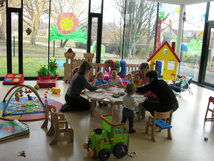Social inclusion
Examples of possible action
In a cross-border context, it is possible to implement several types of actions for social inclusion:
- language training for the neighbour's language on both sides of the border;
- cross-border integrated pathways combining different types of measures for the improvement of employability, such as individual support services, advice and guidance, access to general and vocational education and training, as well as access to certain services, including health and social services and internet services;
- improving cross-border access to quality health care, in order to reduce inequalities in health, support prevention measures and health promotion online, including through targeted actions aimed at particularly vulnerable groups;
- improving access to affordable and sustainable quality social services and services in fields such as employment and training in cross-border areas;
- structures that provide information and guidance (such as INFOBEST in the Upper Rhine) to citizens on access to their rights concerning: working and living conditions, tax systems, social protection, education and training systems, administrative systems, bilateral conventions, and national and European regulations;
- targeted preschool education and care services, including integrated approaches combining childcare services, education, parenting and health, especially for cross-border commuters;
- strengthening support capacity and support structures necessary for the promotion of social enterprises, in particular through education and training in social entrepreneurship, creation of cross-border networks;
- the promotion of local development strategies undertaken by local actors, by supporting the capacity building of local action groups, as well as supporting activities designed and implemented as part of the local strategy, in areas within the scope of the ERDF concerning social inclusion and physical and economic regeneration.


